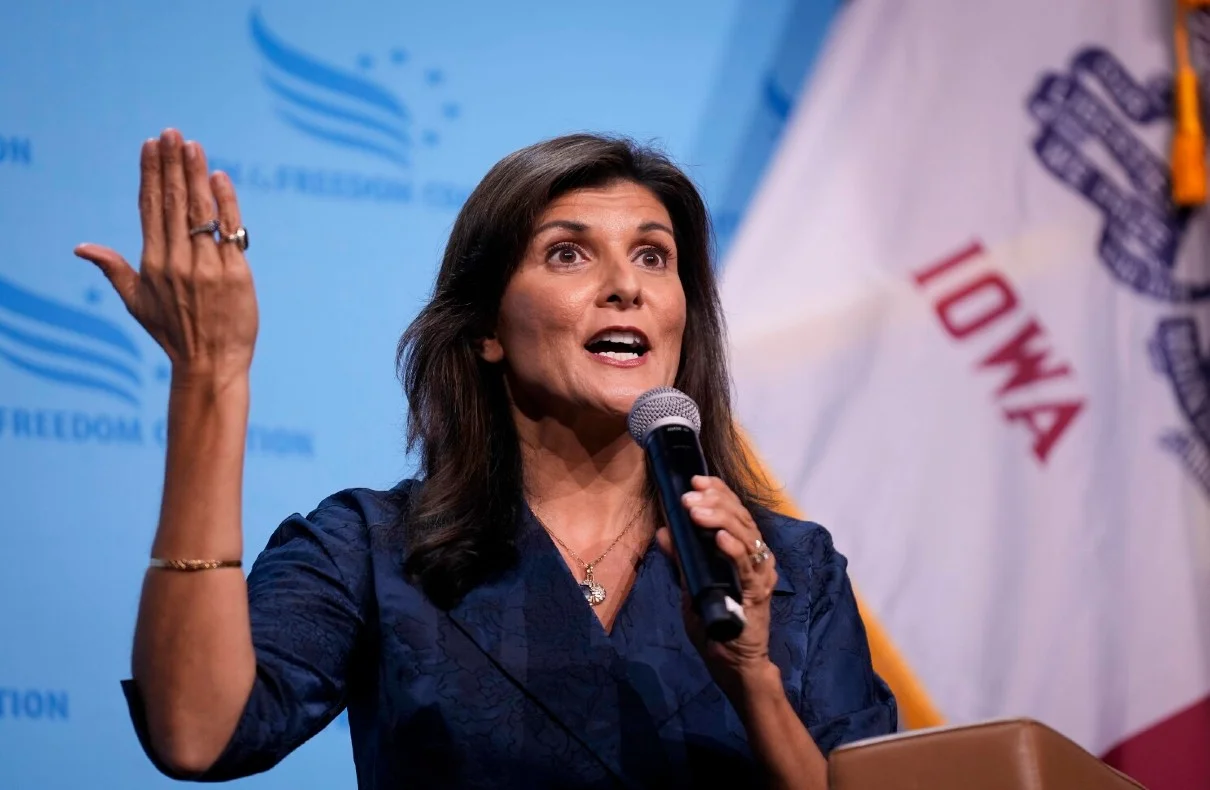
In recent years, the topic of frozen embryos has sparked intense legal and ethical debates. Before we delve into the legal and ethical aspects, it is crucial to understand the process of in-vitro fertilization (IVF). IVF is a widely used assisted reproductive technology that involves the fertilization of eggs outside the body. It offers hope to millions of couples struggling with infertility and has become a common method of conceiving a child.
During IVF, multiple eggs are harvested from the female partner and fertilized with sperm in a laboratory. These fertilized eggs, known as embryos, are then transferred to the woman’s uterus, where they have the potential to implant and develop into a pregnancy. However, not all embryos are immediately used, leading to the question of what should happen to the remaining frozen embryos.
One prominent figure who has taken a firm stance on frozen embryos is Republican presidential candidate Nikki Haley. Haley, a former South Carolina governor, has publicly expressed her belief that embryos are babies. In an interview with NBC News, she stated, “Embryos, to me, are babies. When you talk about an embryo, you are talking about a life.”
Jason Kelce’s Retirement: A Nod to Philadelphia Eagles
Haley’s perspective reflects a deeply-held belief that embryos should be afforded the same legal protections as any other child. This stance aligns with her broader support for restrictions on abortion access. However, Haley has also emphasized the importance of nuanced conversations and personal experiences when discussing sensitive reproductive issues.
The Alabama Supreme Court made headlines with its groundbreaking ruling that IVF embryos are “extrauterine children” and should be legally protected as such. The court’s decision has far-reaching implications for the reproductive rights and IVF practices in Alabama.
The ruling has raised concerns among IVF advocates who fear that the decision could significantly hinder IVF work in the state. Doctors may be wary of potential legal consequences and face homicide charges if mishandling an embryo occurs. This uncertainty has led to a pause in IVF treatments at institutions like the University of Alabama Birmingham.
Despite potential consequences, Haley expressed her support for the Alabama Supreme Court’s decision. She acknowledged the need for sensitive conversations around the topic but stood firm in her belief that embryos should be considered children and protected by law.
The legal and ethical landscape surrounding frozen embryos is complex, and there are various perspectives to consider. Advocates for reproductive rights argue that decisions regarding frozen embryos should be left to the individuals involved, including the donors and the intended parents. They emphasize the importance of autonomy and choice in reproductive decision-making.
National Guard Helicopter Crash Near Texas Border, 2 killed, 1 Injured: Officials
On the other hand, proponents of the “embryos as children” perspective argue that embryos possess inherent value and should be protected accordingly. They contend that frozen embryos should not be treated as mere property but rather as potential lives deserving of legal recognition and protection.
The Alabama Supreme Court’s decision has raised concerns about the future of IVF in the state and the potential for similar rulings in other jurisdictions. Medical providers have already started limiting IVF treatments, fearing legal repercussions.
The ruling also brings attention to the need for comprehensive legislation that addresses the legal status and disposition of frozen embryos. Clear guidelines and regulations can provide clarity and protect the rights of all parties involved, including donors, intended parents, and medical professionals.
The issue of frozen embryos highlights the delicate balance between reproductive rights and personal beliefs. It is essential to respect the diverse perspectives surrounding this complex topic and engage in respectful, informed discussions.
Individuals, lawmakers, and medical professionals must navigate the legal and ethical considerations associated with frozen embryos while considering the rights and well-being of all involved parties.
The legal and ethical landscape surrounding frozen embryos continues to evolve, with the Alabama Supreme Court’s decision generating significant debate. Republican presidential candidate Nikki Haley’s support for considering embryos as children reflects a broader conversation about reproductive rights and personal beliefs.
As society grapples with these complex issues, it is essential to foster open dialogue, respect differing perspectives, and work towards legislation that strikes a balance between reproductive autonomy and the protection of potential lives. Only through thoughtful discussions and comprehensive regulations can we navigate the intricate landscape of frozen embryos and IVF successfully.
